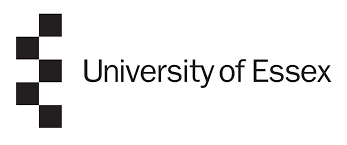
Consulting and leading in organisations: psychodynamic and systemic approaches (ED10, online)
Understand organisational systems and acquire the skills to work more effectively as a leader, consultant or manager
Our work roles and professional experiences are increasingly networked, geographically dispersed, and environmentally conscious. It seems inevitable that, one way or another, a lot more of our work and working relationships will take place online.
This two-year, online course will help you develop a ‘consultative stance’ as a leader, consultant or manager in this context – offering the opportunity to study live what is required and what emerges when working in the mixed economies of face to face and online work relations. The contemporary online medium of the course will be a focus of study.
This course is also delivered as a face-to-face version. The face-to-face and online versions of the course are managed and taught as a single, integrated programme.
Please note: you may see the ED10 course also referred to as SCMATP001O in communications from our application system.
About this course
This course combines experiential learning with the study of psychoanalytic and systemic theory in relation to organisations, bringing into view the complex emotional lives of contemporary organisations. You will learn how to track the flow of pressure around organisational systems, noting how pressure may move up and down hierarchies, or flow out into certain departments, roles or professions, or into ‘troublesome individuals’.
Theory seminars and webinars will introduce you to key concepts such as the individual unconscious, the group unconscious and the institutional unconscious. Contemporary papers and case studies will bring theory to life, exploring issues such as authority and power, organisational change and the politics of difference.
Race, intersectionality and difference are approached using a theoretical, individual and organisational lens, in order to explore how they impact on organisational dynamics, and on the capacity of leaders, managers and consultants to take up their roles.
A range of conceptual tools will develop your capacity to think critically and systemically about organisations. You will learn to map organisational systems and understand the effects of organisational structure on organisational dynamics and vice versa. You will be encouraged to think creatively ‘across the boundary’ between the conscious and unconscious aspects of organisational life, including those of the organisational system in which the course takes place.
In the first year of the course, you will observe an organisation, which will provide you with an invaluable opportunity to watch a group’s functioning when it is engaged in its usual task.
In your second year, you will undertake a supervised consultancy in small supervision groups. You will also be expected to organise yourselves to plan and staff a consultancy intervention for year one students. The focus is not only on the success or failure of the intervention but on the opportunity provided for learning about group processes that emerge when engaging with a client group.
Over the two years, you will participate in experiential groups, the aim of which is to learn how to observe the functioning of a group and to understand the dynamics which influence it, while also participating as a member in the group. Experiential groups allow for the study of issues such as authority, power, leadership, followership, rivalry, boundaries, group defences and cultural and role differences.
Group Relations Conference
Between years one and two, all students take part in a group relations conference, which is an intensive and immersive experience of group and institutional processes. The conference is, in effect, a temporary organisation created to enable you to study relatedness and relationships within and between groups, boundary dynamics and issues of delegated authority. The cost of the conference is included in your course fee.
Students choosing this online pathway to achieve their Master’s must attend an in-person group relations conference – preferably joining their peers from D10 at the September group relations conference at the Tavistock Centre in London. If students are unable to attend a group relations conference at The Tavistock Centre, they may choose from an approved list of alternative conferences, and will be refunded the equivalent of the Tavistock and Portman’s internal group relations conference fee, charged to courses where this is a mandatory requirement.
Please note that students will be responsible for any travel and accommodation costs associated with the conference.
Modules
Module 1: Theory 1 (SC7001)
- Year of Study: Year 1
- FHEQ Level: Level 7
- Credit Weighting: 20 credits
- Module Status: Compulsory
- Module Leaders: Nicola Godwin
Module Aims
- To provide a historical, developmental and cumulative introduction to psychoanalytic perspectives on the organisation, together with historical papers on the origins of systems thinking about organisations.
- To provide an overview of research methods, through the academic and professional skills seminars, and explore strategies of academic writing and presentation, as well as ethical issues in working with and within organisations.
Module Assessment
Students are required to submit a 3000-word essay.
Module 2: Consulting and leading in practice 1 (SC7002)
- Year of Study: Year 1
- FHEQ Level: Level 7
- Credit Weighting: 20 credits
- Module Status: Compulsory
- Module Leaders: Alison Wragg
Module Aims
- To offer an introduction to applying psychoanalytic and systemic thinking to organisations.
- To provide students with a range of conceptual tools with which to study the leadership and management of organisations.
- To explore key ideas from systemic thinking, group relations and psychoanalysis.
- To develop the capacity to think critically and systematically about an organisation, to formulate working hypotheses, and to design appropriate interventions.
- To encourage students to think creatively ‘across the boundary’ between the conscious and unconscious aspects of organisational life.
- To provide the opportunity for students – whether in leadership roles or in the role of consultants – to study and develop the necessary practical skills involved in taking up a ‘consultative stance’.
- To develop the ability to listen to others, whether clients, employees, or other organisational members to elicit and assess the meaning of communications in their various forms, to recognise conscious and unconscious processes and dynamics, to formulate and test hypotheses about what is going on, to communicate these appropriately and to enable oneself and others to understand more about their own organisational processes.
- To enable students to differentiate between a consultative stance and inappropriate psychotherapeutic engagement.
- To learn about the boundaries and limits of the approach.
Module Assessment
Students will be assessed on their participation in seminars and a 2000-word applications essay.
Module 3: Experiential learning and its applications 1 (SC7003)
- Year of Study: Year 1
- FHEQ Level: Level 7
- Credit Weighting: 20 credits
- Module Status: Compulsory
- Module Leaders: Phillip Birch
Module Aims
- To develop the capacity to learn from, and make use of, one’s own individual experiences towards understanding the dynamics of a group.
- To enable students to study and learn at first-hand about the processes that influence individuals and groups when they work together.
- To develop the ability to observe (in person) a group while engaged in its usual activities, making meaning from the dynamics observed and also from the emotional experience of the observer.
- To allow students to take up the role of observer without having to ‘consult’ to an organisation, observing in the widest sense rather than researching by studying existing documentation or asking questions of those observed.
Module Assessment
Students are required to submit a 3000-word essay.
Module 4: Group Relations Conference – Leadership in Organisations (PT7006)
- Year of Study: Year 1
- FHEQ Level: N/A
- Credit Weighting: 0 credits
- Module Status: Compulsory
- Module Leaders: Gwen Hanrahan
Module Aims
- To provide an immersive experience of group and institutional processes, allowing the student to develop further the learning about leadership and followership provided through the first year of the course.
Module Assessment
The module is not assessed. However, attendance at the conference is compulsory and students are required to attend in order to pass the module.
Module 5: Theory 2 (SC7004)
- Year of Study: Year 2
- FHEQ Level: Level 7
- Credit Weighting: 20 credits
- Module Status: Compulsory
- Module Leaders: Nicola Godwin
Module Aims
- This module continues to provide a historical, developmental and cumulative introduction to psychoanalytic and systemic perspectives on consulting and leading in organisations and introduces contemporary applications.
- A number of leaders and consultants present their work using concepts taught on the course. Professional skills such as design of organisational interventions are developed.
Module Assessment
Students are required to submit a 3000-word essay.
Module 6: Consulting and leading in practice 2 (SC7005)
- Year of Study: Year 2
- FHEQ Level: Level 7
- Credit Weighting: 20 credits
- Module Status: Compulsory
- Module Leaders: Alison Wragg
Module Aims
- To develop and use consultative skills through negotiating and completing a consultation. The consultation is conducted in person and outside of scheduled teaching time.
Module Assessment
Students are assessed on their participation in seminars, and through a 2000-word essay.
Module 7: Experiential learning and its applications 2 (SC7006)
- Year of Study: Year 2
- FHEQ Level: Level 7
- Credit Weighting: 20 credits
- Module Status: Compulsory
- Module Leaders: Phillip Birch
Module Aims
- To explore the conscious and unconscious processes of the group in the context of students’ experience of the course.
Module Assessment
Students are required to submit a 3000-word essay.
Module 8: Dissertation (SC7007)
- Year of Study: Year 2
- FHEQ Level: Level 7
- Credit Weighting: 60 credits
- Module Status: Compulsory
- Module Leaders: Gwen Hanrahan
Module Aims
- To provide an opportunity for students to integrate the learning from the theoretical and applied activities in the course, as well as demonstrating the student’s own theoretical understanding from other sources, and capacity to appropriately utilise experiential learning as data – linking it to relevant psychoanalytic, systemic and other theory.
- To address questions of research methodology and support students to extend their exploration of ideas relevant to a systems psychodynamics approach.
- To develop multiple hypotheses arising out of the learning from the consultation undertaken in the earlier part of the course.
- To facilitate conducting literature searches and writing literature reviews.
- To support the writing of a well-structured dissertation.
- To foster the capacity for independent learning.
Module Assessment
Students are required to complete a 14000-word dissertation based on the action research consultancy project completed in Year 2 of the programme.
Who is this course for?
This course is for you if you are a manager, leader, consultant or coach who wants to gain insight into the unconscious processes that affect organisational systems.
This online version of the course will have a focus on virtual teams and mixed virtual and co-located in-person teams. We will examine if the unconscious at work prevails whether the work takes place in real or virtual rooms, or both.
Course details
In order to undertake this course, we ask that you:
- have a minimum of three years’ experience in your chosen profession
- have experience of direct involvement in the management, training or development of other professional workers, or engagement in consultative work for specific organisations
- have a first degree or equivalent, and/or professional experience commensurate with that qualification
- are comfortable in working and studying online and have access to a good internet connection
£8,160 per year (2025/26)
There are no international fees as this course is delivered online.
Please note that students will be required to undertake an observation and a consultancy outside of course time. Students will be responsible for any costs, such as travel, associated with these activities.
You will be charged course fees for each year of your course. If your course is longer than one year, the fees that you will be charged after the first year will be subject to an annual uplift, which is not normally expected to exceed 6% or the Consumer Price Index (as stated on 01 September of that academic year) if higher than 6%. At its discretion and in rare instances, the Trust may determine a figure greater than either, to reflect costs associated with the activity (e.g. assessment, teaching, administration etc.), which shall not exceed 10%. Please refer to our Terms and Conditions, and Student Fees & Refund Policy for further information.
Financial support may be available to help you fund your studies at the Tavistock and Portman NHS Foundation Trust.
Assessment
Over the two years of the master’s, assessment will be through four 3,000 word essays (two each year), two 2,000 essays (one each year) plus a dissertation of 14,000 words completed during the summer following year two.
There is also an element of continuous assessment provided by tutors and supervisors in the ‘Consulting and leading in practice’ module of the course, worth 50% of assessment for that module.
Attendance
- The course will take place across 11 Friday and Saturday teaching blocks (see block dates in table below) and on prescheduled Wednesday evenings (32 in year one, 16 in year two)
- There will be three 75 – 90 minute seminars of group work on each day of each block, with generous breaks provided
- Friday sessions will run from 11.30am to 5.00pm, UK time
- Saturday sessions will run from 11.00am to 4.30pm, UK time
- Wednesdays sessions run from 6.00pm to 7.30pm, UK time
Within the prescheduled Wednesday evenings, seven are dedicated to student-led webinars. These webinars will be a collaboration across the ED10 (online) an D10 (face-to-face) year one student cohort. Year one webinar dates are listed below, and these take place from 6.30pm to 7.30pm, UK time. There will be a further four webinars in year two, which take place from 7.40pm to 8.40pm, UK time.
In year one, three of the Wednesday sessions are dedicated to the observation module seminars, and take place between January and April. In this module, students will find and conduct an in-person organisational observation, made up of 9 one-hour observations in their local area.
Year one students are required to attend an in-person Group Relations Conference, preferably at Tavistock Centre, from 7 – 10 September 2026. Please note that this involves longer days, usually 09.00am – 7.00pm.
In year two, students negotiate and conduct an in-person organisational consultancy in their local area. Supervision will take place during teaching blocks, with an additional 11 mid-block supervision seminars scheduled by supervisors between January and June in the second year, at times which best suit individual supervision groups.
| Term | Session | Dates |
|---|---|---|
| Autumn 2025 | Block 1 | 3 and 4 October 2025 |
| Autumn 2025 | Block 2 | 24 and 25 October 2025 |
| Autumn 2025 | Block 3 | 14 and 15 November 2025 |
| Autumn 2025 | Block 4 | 12 and 13 December 2025 |
| Winter 2026 | Block 5 | 16 and 17 January 2026 |
| Winter 2026 | Block 6 | 13 and 14 February 2026 |
| Winter 2026 | Block 7 | 13 and 14 March 2026 |
| Spring 2026 | Block 8 | 17 and 18 April 2026 |
| Spring 2026 | Block 9 | 8 and 9 May 2026 |
| Spring 2026 | Block 10 | 5 and 6 June 2026 |
| Spring 2026 | Block 11 | 26 and 27 June 2026 |
Student-led webinars:
- Wednesday 15 October 2025
- Wednesday 5 November 2025
- Wednesday 3 December 2025
- Wednesday 28 January 2026
- Wednesday 20 April 2026
- Wednesday 20 May 2026
- Wednesday 17 June 2026
Please note: these webinar dates could be subject to change.
Graduates of this course have:
- improved and developed their consultancy practice
- developed internal consultant roles
- taken up senior management and executive leadership roles
- become self-employed
- created a strong professional network and community of practice
- become ambassadors of the Tavistock approach in consultancy and the organisation
Application support and deadlines
Interested in this course but have questions before applying? Book a 1-1 session with an admissions advisor to find out more.
There are a number of important application deadlines associated with our postgraduate courses, however we encourage you to apply as early as possible, as spaces on our courses are limited and can be competitive.
Applications for this course are expected to close on Thursday 31 July 2025.
The next interviews are scheduled for Friday 8th August 2025. Please block out 14.00 to 17.30 in your calendar if you have been invited to attend the interviews.
Why study with us?
This course will give you a better understanding of yourself in a working context and a greater capacity to understand group processes that create functioning or dysfunctional organisations and teams.
It will enhance your capacity for appropriate task related leadership and develop your ability to act effectively as a consultant, manager or leader in response to organisational issues.
Testimonials
Course facilitators
Validations and accreditations
This course is validated by the University of Essex.
Apply now
Start your application for this course.
Recommended courses
Explore courses to study next
-
 Trust certificate
Trust certificate 
Executive coaching programme – Tavistock Consulting (ECP)
-
 Trust certificate
Trust certificate 
Tavistock qualification in consultation (D10C)
-
 Professional doctorate
Professional doctorate 
Advanced practice and research: consultation and the organisation (D10D)
